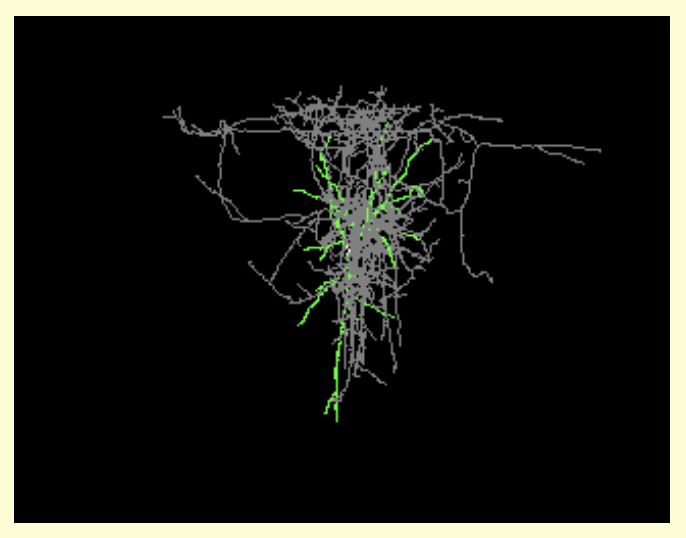The RRID (nif-0000-21180) is not the primary RRID. It is an alternate RRID or alternate ID.
URL: http://gmd.mpimp-golm.mpg.de/
Proper Citation: GMD (RRID:SCR_006625)
Description: It facilitates the search for and dissemination of mass spectra from biologically active metabolites quantified using Gas chromatography (GC) coupled to mass spectrometry (MS). Use the Search Page to search for a compound of your interest, using the name, mass, formula, InChI etc. as query input. Additionally, a Library Search service enables the search of user submitted mass spectra within the GMD. In parallel to the library search, a prediction of chemical sub-groups is performed. This approach has reached beta level and a publication is currently under review. Using several sub-group specific Decision Trees (DTs), mass spectra are classified with respect to the presence of the chemical moieties within the linked (unknown) compound. Prediction of functional groups (ms analysis) facilitates the search of metabolites within the GMD by means of user submitted GC-MS spectra consisting of retention index (n-alkanes, if vailable) and mass intensities ratios. In addition, a functional group prediction will help to characterize those metabolites without available reference mass spectra included in the GMD so far. Instead, the unknown metabolite is characterized by predicted presence or absence of functional groups. For power users this functionality presented here is exposed as soap based web services. Functional group prediction of compounds by means of GC-EI-MS spectra using Microsoft analysis service decision trees All currently available trained decision trees and sub-structure predictions provided by the GMD interface. Table describes the functional group, optional use of an RI system, record date of the trained decision tree, number of MSTs with proportion of MSTs linked to metabolites with the functional group present for each tree. Average and standard deviation of the 50-fold CV error, namely the ratio false over correctly sorted MSTs in the trained DT, are listed. The GMD website offers a range of mass spectral reference libraries to academic users which can be downloaded free of charge in various electronic formats. The libraries are constituted by base peak normalized consensus spectra of single analytes and contain masses in the range 70 to 600 amu, while the ubiquitous mass fragments typically generated from compounds carrying a trimethylsilyl-moiety, namely the fragments at m/z 73, 74, 75, 147, 148, and 149, were excluded.
Abbreviations: GMD
Synonyms: Golm Metabolome Data Base, The Golm Metabolome Database, Golm Metabolome Database
Resource Type: service resource, data or information resource, web service, data access protocol, database, software resource
Defining Citation: PMID:15613389, PMID:15733837, PMID:18501684, PMID:20526350
Keywords: drug, expression, functional, gas chromatography, gene, general chemistry databases, bioinformatic, biological extract, biology, biotechnology, compound, genomic, herbicide, mass spectra, mass spectrometry, metabolism, metabolite, metabolomics, organism, profiling, protein, spectral, system, FASEB list
Expand Allhas parent organization |
Max Planck Institute of Molecular Plant Physiology; Golm; Germany |
We found {{ ctrl2.mentions.total_count }} mentions in open access literature.
We have not found any literature mentions for this resource.
We are searching literature mentions for this resource.
Most recent articles:
{{ mention._source.dc.creators[0].familyName }} {{ mention._source.dc.creators[0].initials }}, et al. ({{ mention._source.dc.publicationYear }}) {{ mention._source.dc.title }} {{ mention._source.dc.publishers[0].name }}, {{ mention._source.dc.publishers[0].volume }}({{ mention._source.dc.publishers[0].issue }}), {{ mention._source.dc.publishers[0].pagination }}. (PMID:{{ mention._id.replace('PMID:', '') }})
A list of researchers who have used the resource and an author search tool
Find mentions based on location

{{ ctrl2.mentions.errors.location }}
A list of researchers who have used the resource and an author search tool. This is available for resources that have literature mentions.
No rating or validation information has been found for GMD.
No alerts have been found for GMD.
Source: SciCrunch Registry





